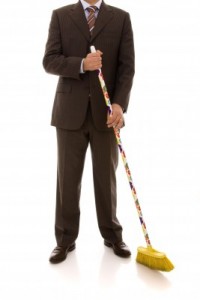 Yes, but don’t destroy any evidence.
Yes, but don’t destroy any evidence.
A 2015 Florida State Bar Association ethics advisory committee addressed whether a lawyer may advise a client to “clean up” social-media pages in anticipation of litigation “to remove embarrassing information.” See Professional Ethics Committee of the Florida Bar, Prop. Adv. Op. 14-1 (Jan. 23, 2015). The committee noted that “a lawyer may advise a client to use the highest level of privacy setting on the client’s social media.” Furthermore, the committee concluded:
Provided that there is no violation of the rules or substantive law pertaining to the preservation and/or spoliation of evidence, a lawyer also may advise that a client remove information relevant to the foreseeable proceeding from social media pages as long as an appropriate record of the social media information or data is preserved.
 This Florida opinion is consistent with North Carolina Formal Ethics Opinion 5, (July 25, 2014), which likewise concluded that a lawyer may advise a client to take down information on social media—if removal does not amount to spoliation of evidence1 and is not otherwise illegal. It further advised that a lawyer must provide advice about information on social media if the postings in question are relevant to the client’s representation.
This Florida opinion is consistent with North Carolina Formal Ethics Opinion 5, (July 25, 2014), which likewise concluded that a lawyer may advise a client to take down information on social media—if removal does not amount to spoliation of evidence1 and is not otherwise illegal. It further advised that a lawyer must provide advice about information on social media if the postings in question are relevant to the client’s representation.
- Under Louisiana Law the term “spoliation of evidence” refers to “an intentional destruction of evidence for purpose of depriving opposing parties of its use.” Pham v. Contico International, Inc., 759 So. 2d 880, 882 (La. Ct. App. 5th Cir. 2000) (citing Hooker v. Super Products Corp., 751 So. 2d 889 (La. Ct. App. 5th Cir. 1999); Kammerer v. Sewerage and Water Board of New Orleans, 633 So. 2d 1357 (La. Ct. App. 4th Cir. 1994)). The Pham court noted that “the tort of spoliation of evidence has its roots in the evidentiary doctrine of ‘adverse presumption,’ which allows a jury instruction for the presumption that the destroyed evidence contained information detrimental to the party who destroyed the evidence unless such destruction is adequately explained.” Id. (citing Randolph v. General Motors Corp., 646 So. 2d 1019 (La. Ct. App. 1st Cir. 1994)). ↵
